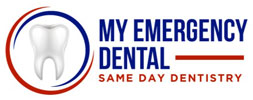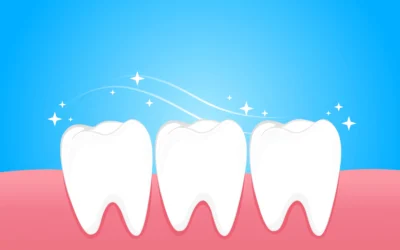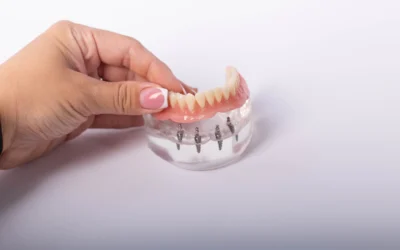What Is Gum Disease?
Known as periodontal disease in the healthcare setting, gum disease is an infection of the gums, which are the connective tissues that support and hold our teeth in place. Depending on the severity of the case, the bacteria in plaque forms and hardens on the teeth, producing tartar, and it can cause tooth loss, bleeding gums, and problems chewing food.
Periodontal disease takes place in four stages:
- Gingivitis: As the early stage in gum disease, gingivitis causes your gums to bleed more often while brushing, flossing, or eating certain foods. The build-up of plaque and hardened tartar will cause swelling of minor gum tissue and possible redness.
- Slight Periodontal Disease: If your oral health is past the first stage, this untreated gingivitis will progress into slight periodontal disease. At this stage, your gums and gum line will be tender and inflamed. The gum tissue and bone structures supporting the teeth start to weaken and may lead to tooth loss.
- Moderate Periodontal Disease: At this point in gum disease, you will be able to see your gums receding. The recession exposes your tooth enamel, leading to loose teeth and tooth decay. In addition, you may experience a whitish-colored discharge, which are all warning signs that you are about to enter in the last and most concerning stage of periodontal disease.
- Advanced Periodontal Disease: In this final stage, the infection starts destroying the jawbone while further loosening the teeth. Many of your teeth will be looser than before, and the gums will shrink. Unless this is treated by a dentist or periodontist, tooth loss will be unavoidable. The next step is to seek professional dental treatment.
How Do I Know If I Have It?
Gum disease can go unnoticed, especially if it’s in the early stages of gingivitis. Your teeth may appear to be normal, or you haven’t experienced any pain. However, the more you notice the signs, the more severe your case is. Symptoms of periodontal disease include:
- Sore gums
- Loose teeth
- Sensitive teeth
- Red swollen gums
- Pain while chewing
- Gums bleed easily
- Recurring bad breath
What Causes It?
While genetics and age will affect your susceptibility to contract gum disease, it is mainly caused by poor oral hygiene. Our mouths are full of bacteria. Without routine oral hygiene, the bacteria build-up and cause inflammation and eventually infection around the gums. Other factors that contribute to periodontal disease include:
- Stress
- Obesity
- Hormonal changes
- Recreational drug use
- Defective dental work
- Using tobacco products
- Immunodeficiency disorders
- Chronic or autoimmune diseases
- Vitamin and nutritional deficiencies
- Medications that cause dry mouth
How Do I Treat It?
Only a dentist or dental hygienist can perform in-depth, professional cleanings to get rid of the hardened tartar. Some non-surgical cleaning methods include:
- Scaling: Dental professionals scrape away tartar from the gums, top to bottom
- Lasering: Less painful way of removing tartar
- Root planing: A method used to smooth rough spots in the gums along with removing plaque and tartar
- Antibiotic medications: For areas of gums with persistent inflammation, your dental provider may prescribe antibiotics that prevent further damage. Some antibiotics can be taken orally, and some are inserted into the periodontal pockets located under the gum line.
In advanced cases, surgery may be the only treatment option.
- Bone and tissue grafts: The dentist inserts a piece of bone into the gum tissue where it’s lacking. Over time, your body will grow new bone tissue where the other was placed.
- Flap surgery: The periodontist or oral surgeon lifts the gum so they can better reach the tartar for removal. Once the area is clean, they will put the gum back in place.
What If I Do not Treat my Gum Disease?
If you don’t have regular dental visits or have a professional treat your gum disease, you will experience tooth loss. However, that’s not all you could suffer from.
Other health risks associated with gum disease are heart disease, diabetes, stroke, and lung disease. While it is not proven that gum disease causes heart disease, there’s a possibility that gum disease may be a risk factor for it. Both diseases share two risk factors: an unbalanced diet and smoking. Current smokers make up about 64% of individuals with periodontal disease.
Can I Prevent It?
Yes. According to the American Academy of Periodontology, gum disease is preventable with a healthy dental routine and diet. While age and genetics have an influence, you can still do your part to prevent gum disease. Here are a few tips:
- Visit the dentist regularly
- Self-examine your gums
- Brush and floss daily
- See a periodontist
- Quit smoking
Schedule an Appointment or Walk-in Our Emergency Office in the Greater Atlanta Area
Let our doctors and staff at My Emergency Dental in Marietta, GA take care of your periodontal needs. Call us at 470-523-8118 or walk in for a same-day procedure at your trusted American dental practice.
Here at My Emergency Dental, we accept most major insurances. We are an emergency and comprehensive dental care team for adults and teens dedicated to helping the Greater Atlanta area through our general and cosmetic dentistry services. For your convenience, we are open 7 days a week, 8 a.m. until midnight. Please don’t neglect your gums and give us a call!



